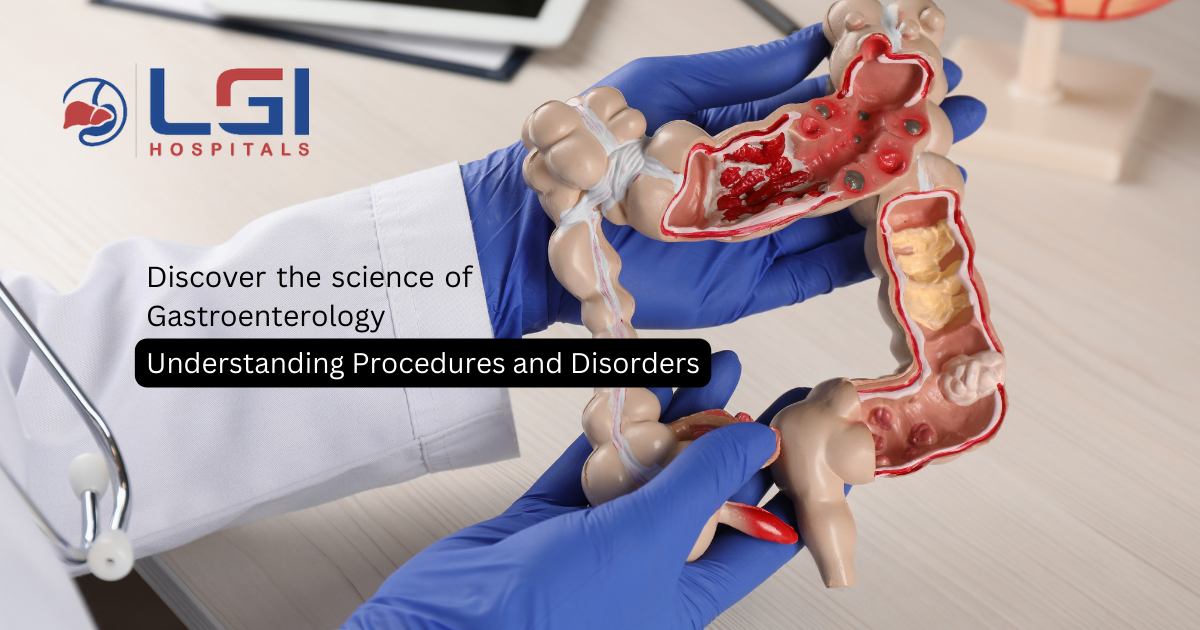Gastroenterology, a medical specialty focused on the digestive system, plays a pivotal role in maintaining overall health. This blog explores the realm of gastroenterology, delving into its definition, essential procedures, and the diverse range of disorders it addresses. As we navigate this journey, we’ll emphasize the expertise and services offered at LGI Hospital Nagpur, ensuring a comprehensive understanding of gastroenterology.
Gastroenterology Defined:
Gastroenterology encompasses the study and management of conditions affecting the digestive system. This intricate field addresses a myriad of organs, including the esophagus, stomach, liver, gallbladder, pancreas, small intestine, large intestine, rectum, and anus.
Procedures in Gastroenterology:
1. Endoscopy: A minimally invasive procedure using a flexible tube with a camera to examine the digestive tract. This aids in diagnosing ulcers, polyps, tumors, and inflammation.
2. Colonoscopy: involves examining the colon and rectum with a camera-equipped tube, primarily for colorectal cancer screening and diagnosing conditions like polyps and inflammatory bowel disease.
3. Liver Biopsy: Removal of a small liver tissue sample for microscopic examination, assisting in diagnosing liver diseases and determining appropriate treatments.
4. Imaging Tests: Techniques like abdominal ultrasound, CT scans, or MRI provide detailed images of digestive organs, aiding in the detection of abnormalities.
Common Gastrointestinal Disorders:
1. Gastroesophageal Reflux Disease (GERD):
Causes: Weakening of the lower esophageal sphincter, allowing stomach acid to flow back into the esophagus.
Symptoms: Heartburn, regurgitation, chest pain, difficulty swallowing.
Treatment: Lifestyle modifications, medications, and occasionally surgery.
2. Peptic Ulcer Disease:
Causes: H. pylori infection, NSAID use, smoking, excessive alcohol consumption.
Symptoms: Abdominal pain, bloating, nausea, vomiting, weight loss.
Treatment: Eradication of H. pylori (if present), medications to reduce acid production, and promote healing.
3. Inflammatory Bowel Disease (IBD):
Types: Crohn’s disease and ulcerative colitis.
Symptoms: Abdominal pain, diarrhea (often with blood), weight loss, fatigue.
Treatment: Medications, lifestyle changes, and sometimes surgery to manage chronic inflammation.
4. Irritable Bowel Syndrome (IBS):
Characteristics: Functional disorder with symptoms like abdominal pain, bloating, gas, diarrhea, and constipation.
Treatment: Focuses on symptom management through dietary changes, stress reduction, medications, and probiotics.
5. Gallstones:
Composition: Hardened deposits in the gallbladder, often cholesterol or bilirubin-based.
Symptoms: Abdominal pain, nausea, vomiting, jaundice.
Treatment: Medications, surgery (cholecystectomy), or non-surgical techniques based on symptom severity.
6. Gastrointestinal Cancers:
Types: Oesophagal, gastric, liver, pancreatic, colorectal.
Symptoms: Vary by location and stage, including weight loss, abdominal pain, changes in bowel habits, and difficulty swallowing.
Treatment: Early detection through screening tests (e.g., colonoscopy), followed by surgery, chemotherapy, radiation therapy, targeted therapy, and immunotherapy.
In the vast landscape of gastroenterology, understanding the procedures and disorders is paramount for proactive health management. LGI Hospital Nagpur stands as a beacon of expertise, providing specialized care for gastroenterological concerns. Whether navigating diagnostic procedures or addressing complex disorders, the commitment to comprehensive healthcare at LGI Hospital Nagpur ensures patients receive the highest standard of gastroenterological services. For those seeking personalized and effective solutions for digestive health, LGI Hospital Nagpur remains a trusted partner in the journey towards overall well-being.

